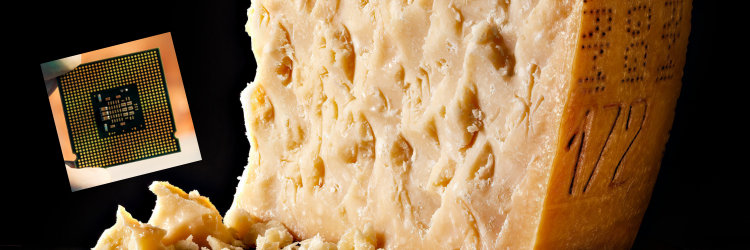Did you know that there’s a $2 billion fake cheese industry? Makers of Italian Parmigiano cheese are fighting back with an unlikely tool: microchips. The Parmigiano Reggiano Consortium (PRC) has tried for a century to combat cheaper imitation cheeses that fail to meet the stringent criteria for authentic production.
Parmigiano Reggiano must be crafted in a specific northern Italian region that encompasses the provinces of Parma and Reggio Emilia. The cheese wheels mature for at least a year in a mountain climate and are assessed by experts two years post-production to ensure their quality.
These products are often priced at a premium, attracting counterfeiters. The PRC estimates that annual global sales of fake cheese amount to about $2 billion, not far from the authentic product’s sales, which reached a record $3.1 billion last year.
The new method of tracing authentic cheese wheels is the product of a collaboration between the PRC, microchip maker p-Chip Corporation, and Dutch/French cheesemark producers Kaasmerk Matec. Producers now believe that modern technology is essential, particularly as exports of parmesan to international markets are growing, with just under half of last year’s production making its way beyond Italy’s borders.
Last year, the PRC prevented U.S. food giant Kraft Heinz from registering the “Kraft parmesan cheese” trademark in Ecuador—a significant triumph, considering that the EU’s PDO status is not universally recognized outside Europe.

